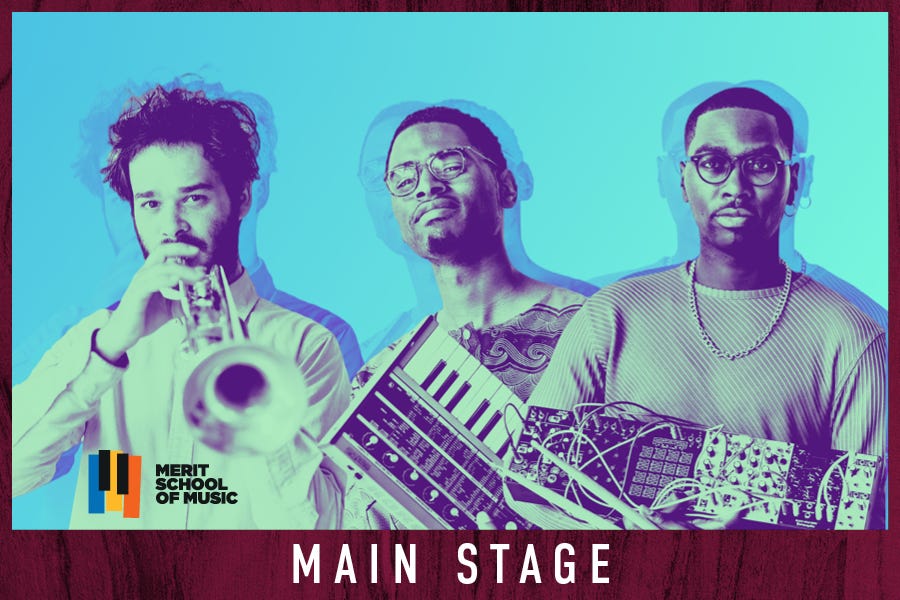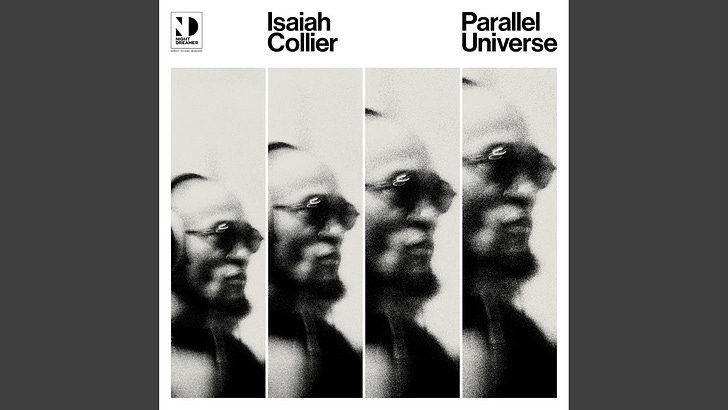New single out with Isaiah Collier called Retreat.
Hi everyone,
Back in March, I recorded a new album called Parallel Universe with my dear friend Isaiah Collier in Haarlem, Netherlands. Its first single, Retreat, is now out on streaming platforms. It was so dope to be on this project, having recorded direct-to-disc at the legendary Artone Studio (which is adjacent to a massive European vinyl pressing plant).
When we were getting ready to head to Europe, I asked Isaiah’s manager, Sonny, what kind of piano they’d have for me. Sonny’s immediate response was “what even is a piano?” Now, it’s/ for Sonny to speak in code, so I shouldn’t have been surprised by so cryptic a response. But Sonny’s got a lot of wisdom packed into his jokes. Sometimes I’ve had to laugh my way into hearing that.
So when Sonny first asked the question, I initially just dismissed it and wondered why I even asked. I resigned myself to having to wait and see. (Turns out the piano ended up being excellent and all was well.)
But Sonny’s question has stayed with me long since that recording date, because I knew he was trying to get me to see deeper than equipment or name brand. What even is a piano?
I have played the piano my whole life, as an amateur and then at some point as a professional.* But only over the past few years have I started to contemplate how our instruments form us as we play them.
The word “piano” is a shortened version of the Italian words pianoforte or fortepiano, which mean soft-loud and loud-soft, respectively. The language reflects the modern piano’s inventor, Bartolomeo Cristofori. (Its ancestry runs deeper than that, of course.)
Over the time the name has been shortened to just “piano,” a convention I find helpful for seeing how the piano has formed me. There is so much in the names we give our loves, and musical instruments are no different. For instance, “clarinet” arguably comes from the word clarion, for its clarity of sound, while “trumpet” comes from the word trump for its forthrightness (ha). So for the piano to have its name mean “soft” suggests to me that pianists and their listeners are called to recognize the power of quiet.
This abbreviated name reminds me of the soft role that I play as a pianist. For one, given my contexts frequently involve loud instruments like trumpet, drums, and computer tracks, the piano would not be heard by the audience were it not for mic’ing or excellent acoustics in the space. (Ask me how I know.)
But two, the piano in the Jazz and Gospel contexts is an instrument that is often intended to accompany other instruments, physical and vocal. (I talk about that in this interview.) When I am playing behind someone’s solo, that is called “comping.” Even when I play my own solos, typically my left hand comps for my right. And in the Gospel world, the piano is tucked behind the vocalists on stage or behind the singing congregation. All to say, the piano is a way I support other people in their song, and thus requires a kind of quiet in me in order to listen well to others.
The quietude of the piano also extends to my life as a recording artist. The nature of the piano has helped me listen for others who want to make sound with and on top of mine, such as my collaborations with Isaiah Collier, Peter CottonTale and Jamila Woods, and of course, my beloved The JuJu Exchange. Even my first solo record, a collection of hymns known as Rest Assured, was an exercise in quiet playing. (It was magical playing it on repeat in the delivery room as Lydia came into the world. The doctors predicted she’d be a chill baby. So far, that’s kinda been true.)

While God has formed me for quiet through the piano, God has also used it to form me for loudness. To that end, I am looking forward to November where I’ll be making a lot of noise on that thang, starting with The JuJu Exchange playing Nov 1 at City Winery here in Chicago and leading up to my debut show at the Jazz Showcase here in Chicago. There I will be playing and celebrating the release of my debut EP, Candid, which chronicles my journey into being a solo artist, narrated from the piano. I’m grateful Sonny the Sage has asked me that question. It’s one I’ll keep answering every time I play for you: What even is a piano?
abundantly,
Julian
*Side bar: When do musicians ever become professional? It’s not like you pass a bar or the boards in order to join a guild. If you get paid, and you profess to play the instrument, then technically you’re a professional - a low barrier to entry, but a high bar to maintain if you want to make a living at it. Just a musing.
What’s Next:
Oct 30 Notes of Rest Virtual Class at Candler School of Theology Starts (2 weeks left)
Nov 1 The JuJu Exchange at City Winery Chicago, fundraiser for Merit School of Music
Nov 4 Julian Davis Reid’s Circle of Trust at Merit School of Music (Chicago)
Nov 8 Notes of Rest at Garrett School of Theology (Chicago)
Nov 9 Notes of Rest at Duke University Chapel (Durham)
Nov 10-12 Isaiah Collier & The Chosen Few at the Jazz Showcase (Chicago)
Nov 13 Isaiah Collier & The Chosen Few at Bronzeville Winery (Chicago)
Nov 16 Julian Davis Reid’s Circle of Trust at The Jazz Showcase (Chicago)
Nov 29 Ministering at First United Methodist Church of Oak Park, IL




I love this so much! The "Ask me how I know" moment got a chuckle out of me. I love following your journey, Julian and just got the idea today that I would love to write together one day! Sending that out into the stratosphere. Blessings and love my old friend!
Hard to beat a Sax as a solo instrument. You know the guitar "Fuzz" boxes of the '60's ( like what Jimi Hendrix used ), they were made to emulate the Sax of the '50's ! Anyway, Julian, piano can be great as a solo instrument, if you get out of the habit of using your left hand as an "accompaniment" and instead use it as an integral part of soloing. I suggest listening to Rod Argent of "Argent" from the '70's and, earlier, in the '60's, the "Zombies." PS I enjoyed the tune you shared, quite a bit! Though, I prefer songs with words, to tell something about the Lord.